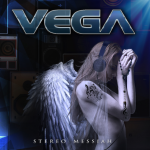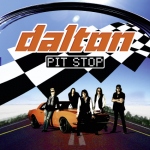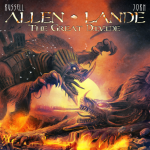 Is ello.co the first social network to jump the shark before it’s even out of beta?
Is ello.co the first social network to jump the shark before it’s even out of beta?
Today has not been a good day for the fledgeling application. Their expansion coincided with a mass exodus from Facebook as a consequence of Facebook’s heavy-handed enforcement of their “real names” policy, and a flood of new users found a system that wasn’t ready for prime time. Simultaneously serious doubts have been raised about their potential business model.
First, the beta went live without any form of block or muting functionality, which ought to be a fundamental part of any social networking application, and guarantees it will turn toxic the moment the trolls turn up in any numbers. Which also makes it unsafe for anyone who’s concerned about being stalked or harassed online. They did have a lengthy and rather vague list of speech codes, some of which were themselves problematic, which combined with a lack of a block function gave the impression they wanted the sort of centralised top-down moderation typical for smaller community sites rather than the sort of decentralised user-level moderation that actually works for larger unfocussed networks. This might explain why knowledgeable and reliable people believed the hoax that ello were banning users referencing “#GamerGate” as “hate speech”.
Second, it’s another closed-source proprietary system with no API and no means of exporting the data you’ve been putting in to it. The world really doesn’t need yet another walled garden that retains complete control over your data and your connections. I still live in hope that the next generation of social networking will be an ecosystem of open source applications which no one corporation controls. I’m not holding my breath though.
Finally, the founders never revealed the fact that they were funded by venture capitalists, which suggests the promises of being ad-free and not selling user data may well not survive the exit strategy demanded by the VCs. Vague promises not to be evil seldom survive IPOs or sales.
At the moment, I don’t think ello.co is for me. There is a chance that it might take off. But at the moment at its best it’s value little more than an insurance policy against Twitter turning bad. I can’t see it becoming the Facebook killer it’s been touted to be. It’s more likely to fade away like app.net did.
 “Stereo Messiah“, the third album by British rockers Vega is a solid piece of work. With a shimmering production from John Mitchell of It Bites, it’s full of big choruses, spiralling guitar breaks and the occasional very 1980s keyboard sound. Frontman Nick Workman provides some classic high register AOR vocals, and Marcus Thurston’s guitar shredding always complements the songs, with a touch of Neal Schon in some of his solos. It does suffer a little from a lack of variety, with many songs sharing very similar tempos and structures; it’s not until the closing power-ballad “Tears Never Dry” that we get any real change of pace. But with tight playing and some strong songwriting, fans of the likes of Def Leppard or Journey should still find a lot to like about this record.
“Stereo Messiah“, the third album by British rockers Vega is a solid piece of work. With a shimmering production from John Mitchell of It Bites, it’s full of big choruses, spiralling guitar breaks and the occasional very 1980s keyboard sound. Frontman Nick Workman provides some classic high register AOR vocals, and Marcus Thurston’s guitar shredding always complements the songs, with a touch of Neal Schon in some of his solos. It does suffer a little from a lack of variety, with many songs sharing very similar tempos and structures; it’s not until the closing power-ballad “Tears Never Dry” that we get any real change of pace. But with tight playing and some strong songwriting, fans of the likes of Def Leppard or Journey should still find a lot to like about this record. “Pit Stop” by Dalton is far less impressive. Dalton were an 80s hairspray band from Sweden who made a couple of albums and were then “killed off by grunge”. A generation later they’re trying to make a comeback. Unfortunately this album gives a clue as to why they might have failed the first time around. The opening song “Ready or Not” gets of the album off to bad start with some ugly sexist lyrics that should have stayed in the 80s, and the sound of a bunch of blokes who must be in their 50s singing adolescent-themed lyrics about girls and parties is not a pleasant one. Musically it’s very formulaic, and it’s all been done many times before by far better bands. Hair metal is a genre that hasn’t aged well, especially for a band who were also-rans in the first place.
“Pit Stop” by Dalton is far less impressive. Dalton were an 80s hairspray band from Sweden who made a couple of albums and were then “killed off by grunge”. A generation later they’re trying to make a comeback. Unfortunately this album gives a clue as to why they might have failed the first time around. The opening song “Ready or Not” gets of the album off to bad start with some ugly sexist lyrics that should have stayed in the 80s, and the sound of a bunch of blokes who must be in their 50s singing adolescent-themed lyrics about girls and parties is not a pleasant one. Musically it’s very formulaic, and it’s all been done many times before by far better bands. Hair metal is a genre that hasn’t aged well, especially for a band who were also-rans in the first place. “The Great Divide” by Allen/Lande can best be described as epic melodramatic cheese. But it’s high-quality cheese made with the very finest ingredients. Russell Allen and Jorn Lande are a pair of class acts as vocalists, with Jorn Lande in particular the nearest thing nowadays to the late Ronnie Dio. The songwriting and production is the work of Timo Tolkki, formerly of Finnish power-metallers Stratovarius, who also plays all the guitars, bass and keys.
“The Great Divide” by Allen/Lande can best be described as epic melodramatic cheese. But it’s high-quality cheese made with the very finest ingredients. Russell Allen and Jorn Lande are a pair of class acts as vocalists, with Jorn Lande in particular the nearest thing nowadays to the late Ronnie Dio. The songwriting and production is the work of Timo Tolkki, formerly of Finnish power-metallers Stratovarius, who also plays all the guitars, bass and keys.

 This is
This is 